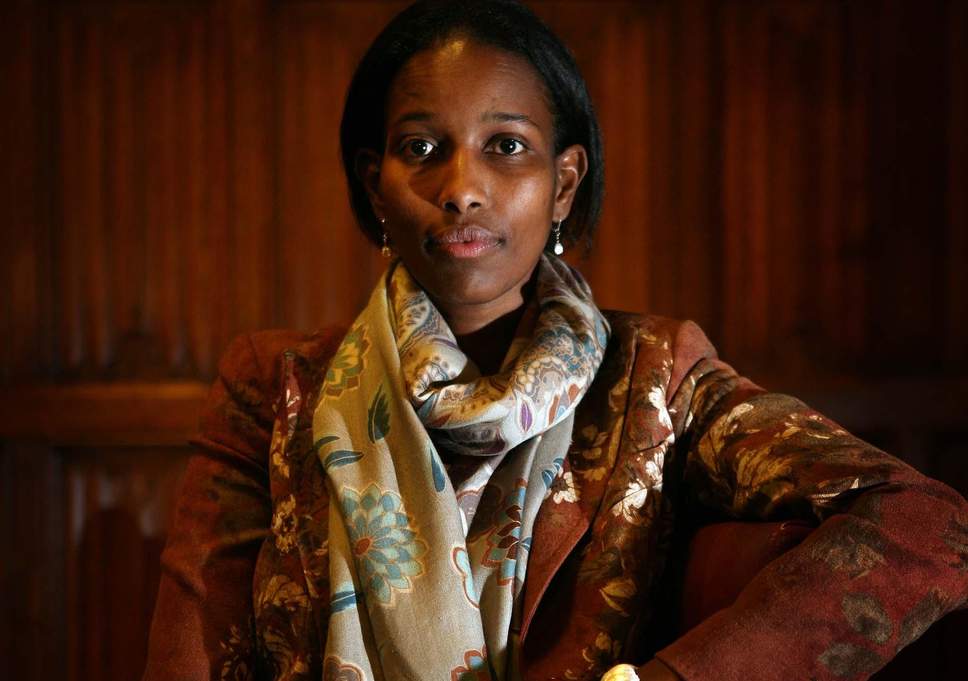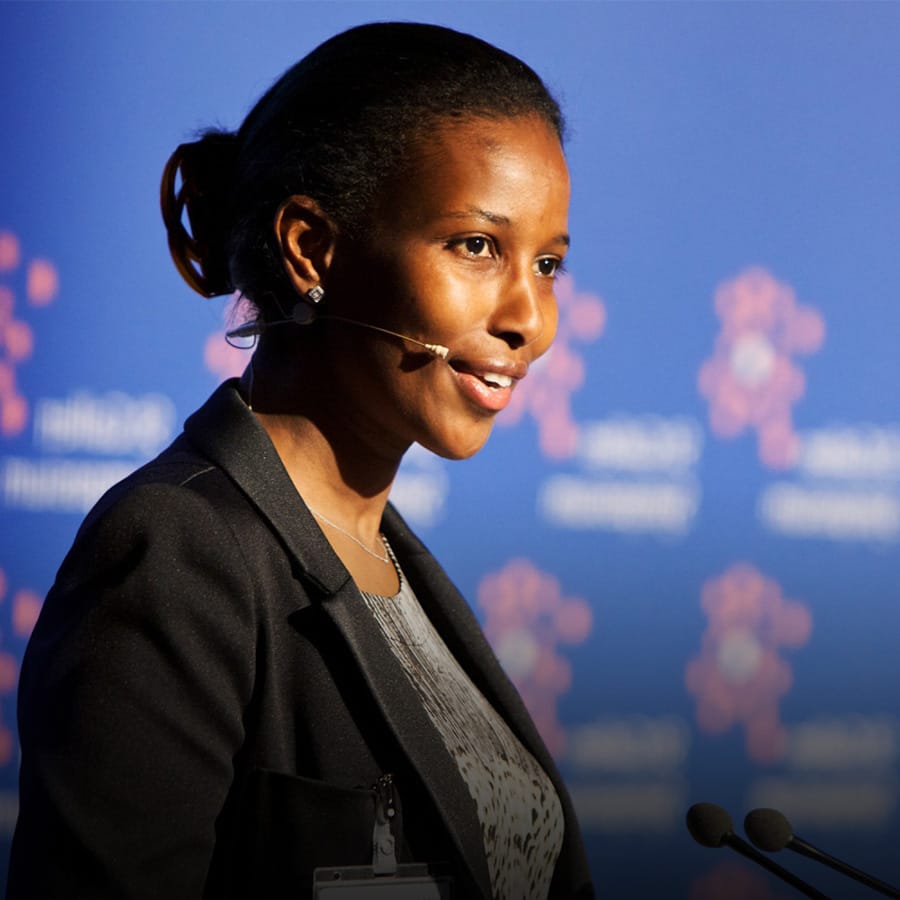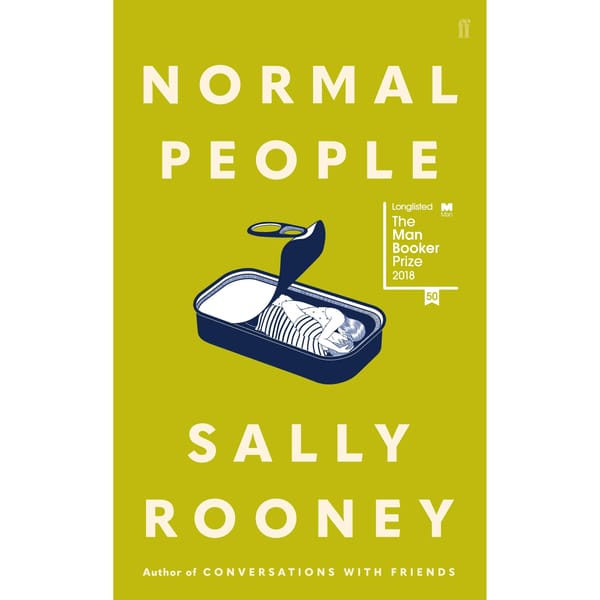Ayaan Hirsi Ali: The woman who is not afraid to speak her mind

In her first autobiography, activist, feminist and former politician Ayaan Hirsi Ali writes about her life growing up from Somalia to Holland. Infidel: My Life charts her personal journey and relationship with Islam, to the founder of AHA foundation today, which promotes liberty from honor killings, female genital mutilation, and forced marriages.
One morning in Amsterdam, on November 2nd 2004, a man wakes up, has his breakfast, and hops onto his old black bicycle to head to work at his film production company. Meanwhile, another man lies in wait in a doorway, carrying two knives and a handgun. As the cyclist trundles down the Linnaeusstraat in central Amsterdam, the other man approaches, pulls out his gun, and shoots. He shoots again. And again. The cyclist, now wounded, runs to the other side of the road to escape, but collapses at the road’s edge.
The gunman follows in pursuit, and stands over the sputtering, bleeding man. Ignoring his desperate pleas for mercy, the gunman shoots him four more times. He then takes out a large knife, grasps the wounded cyclist’s body by the head, and saws so deeply into his throat that it almost decapitates him. Finally, with his other knife, he stabs a five-page letter onto the dead man’s chest before fleeing the scene. This was the brutal murder of Theo van Gogh by Mohammed Bouyeri. The letter called for the death of Ayaan Hirsi Ali.
Infidel is Ayaan Hirsi Ali’s first autobiography, and van Gogh’s murder was a catastrophic apogee of her life’s trajectory up to that point. Born in 1969 in Mogadishu, she writes about her youth growing up in Somalia, Saudi Arabia, Ethiopia, and Kenya. She describes how she was forcibly excised at age 5 by her grandmother, how she was repeatedly beaten by her mother growing up, and how an Islamic teacher once fractured her skull for disobedience. At age 23, she fled to Holland, away from an arranged marriage by her father.
While in Holland, she achieved a political science degree from Leiden University. She recognised the terrible threat of Islamic extremism following 9/11, and was driven towards Dutch politics, eventually becoming an MP in 2003. She wanted to put the plight of Muslim women on the political agenda, as well as address problems of integration and adoption of Dutch values amongst immigrant communities. Many of her colleagues thought she was exaggerating or over-sensationalising these problems.
In response to this, Hirsi Ali approached the minister of justice, Piet Donner, to register how many honour killings took place in Holland each year. He agreed to a ‘pilot project’ where they examined two (out of a possible twenty-five) police regions. Between October 2004 and May 2005, in just those two regions, eleven Muslim girls were killed by their families. That was more than one a month. Parliament was shocked. For these girls, just being seen with a boy, especially a Dutch boy, was a death sentence. Now, honour-related homicides in Holland are registered as such.
A common running thread in Infidel is the power of belief. Hirsi Ali was brought up a devout Muslim, wearing full-body Islamic dress at school, and describes in great detail her slow and arduous personal journey in leaving Islam. She made the journey moving from the world of faith to the world of reason, from religious dogma to Enlightenment values, from the world of forced excision and marriage to the world of sexual freedom. She writes in the epilogue to Infidel: “Having made that journey, I know that one of those worlds is simply better than the other.”
She is a fascinating, brilliant woman, and is now a true hero championing women’s rights, human rights, and liberal values. She founded The AHA Foundation in 2007, which aims to protect women and girls in the U.S. from harmful Islamic cultural practices such as female genital mutilation, honour violence, and forced marriage.
Despite her hugely positive influence on the world, some Westerners still refuse to listen to her views on Islam, and Muslims around the world have called for multiple fatwas on her head. Fears for her life reached a startling reality following her collaboration with the Dutch filmmaker Theo van Gogh, and his subsequent murder in 2004.

The savage public execution of Theo van Gogh by Mohammed Bouyeri was a cataclysmic event for the people of Holland. What was van Gogh’s and Hirsi Ali’s crime? They criticised the treatment of women under Islam. For criticising an idea, in one of the most free and liberal Western societies in the world, they had been sentenced to death.
They had created a short, 10-minute, artistic film titled Submission: Part One. There was never a part two. The film was about the relation between the individual and Allah. In Islam, this relationship is one of total submission (indeed, ‘submission’ is one of the possible translations of the Arabic word ‘Islam’). Worship of Allah requires unquestioning obedience to the rules as declared in the Qu’ran. With the film, Hirsi Ali wanted to shift this attitude more towards having a dialogue with Allah.
In the film, a single veiled actress stands in the centre of a room, surrounded by four Muslim women at its corners. Each of the women have been subject to different forms of abuse, and relevant verses from the Qu’ran (4:34, 2:222, and 24:2) are painted on their bodies. After reciting the ‘Sura Fatiha’ (which every Muslim is required to recite first, at every prayer), the central actress, rather than bowing down, raises her head. Through her, the four Muslim women’s stories are told.
One woman has been flogged for falling in love. Another laments being forced to submit sexually to her husband, whom she was also forced to marry, for the Qu’ran says: “When your wives have purified themselves, ye may approach them in any manner, time or place.” The third woman is beaten by her husband at least once a week. And the final is a young girl, confined to her own home, who has been raped by her uncle. She is now pregnant and will be punished for having sex outside marriage.
By creating the film, Hirsi Ali wanted to make it difficult for people to turn a blind eye to this problem. She wanted Westerners to stop deluding themselves that Islam is only about peace and tolerance. She wanted to illustrate that the punishment and oppression of women is mandated in the Qu’ran, and it is not simply a gendered issue. The Qu’ran legitimises culpable males’ actions so that they feel no shame and aren’t challenged by their conscience or their community. The strict interpretation of the Qu’ran causes intolerable misery for women. All feminists should be outraged by this.

I list some clarifying statements here. First-off, there is a difference between Muslims the people, and Islam the belief system. It is nobody’s intention to demonise a group of people by pointing out flaws in the belief system. A belief system, like any set of ideas, should be open to critical inquiry.
Secondly, Muslims are not one particular race, and Islam is most certainly not a race, so its criticism is by definition not racist.
Thirdly, not all ways of living are equal, and it is not bigoted to question differences between Western and Islamic culture that incur undue suffering, especially towards women.
However, Western feminists appear to have misplaced their priorities, as have many liberal elites. Throughout Infidel, Hirsi Ali makes it clear that various specific tenets of Islam are antithetical to modern civil society (as have many others, including Sam Harris, Douglas Murray, and Christopher Hitchens, for example). But anyone who states this fact, however well-intentioned, is often swiftly met with accusations of racism and bigotry. This is not a helpful response if we wish to make progress on this issue. It is, apparently, now of more importance for Westerners to hide behind a shallow pretence of tolerance, than it is to look honestly at this real clash of cultures. Tolerance is a virtue, but it needs to work both ways.
We need more people to be able to think and speak clearly about these topics, and not have to fear for their lives in doing so. Hirsi Ali herself still lives with round-the-clock protection. No-one should have to do this for speaking their mind. The issues inherent in Islam should not be untouchable.
I think everyone can and should benefit from reading Infidel. Ayaan Hirsi Ali’s story is moving, riveting, and consciousness-enhancing. She writes with heart, wit, intent, and a great perspicacity of the most important and compelling social issues of our time.








